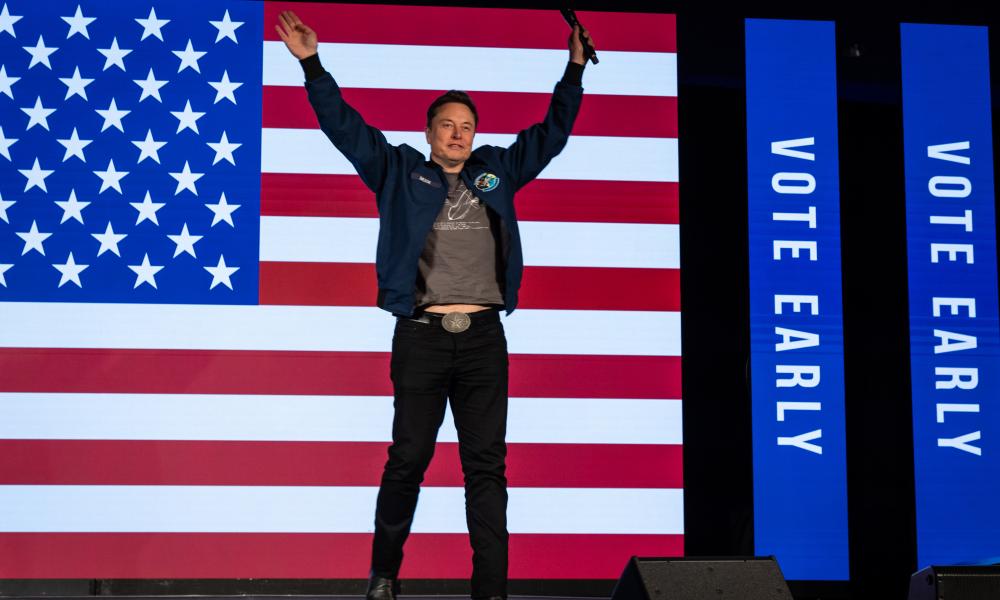On election night, a distinct union formed between Silicon Valley elites and Donald Trump as they celebrated his apparent electoral victory at Mar-a-Lago. This gathering of tech billionaires, including notable figures like Elon Musk, Marc Andreessen, and Peter Thiel’s venture capital executives, signified a convergence of wealth, influence, and political ambition. The venture capitalists expressed optimistic predictions for a new political era characterized by minimal regulations and an anti-woke agenda that they believed would favor the tech sector. Among them was David Sacks, a prominent investor who took an active role in discussions surrounding Trump’s policies, reflecting a growing partnership between Silicon Valley and his administration. This alliance hinted at a future where some of the most powerful players in tech were theorized to aid in guiding government policies closely aligned with their business interests.
Several prominent Silicon Valley investors, including Joe Lonsdale and Palmer Luckey, conveyed a sense of personal victory intertwined with Trump’s political aspirations. They highlighted the potential for their elite network of innovative and assertive individuals to influence a new administration. This camaraderie among figures in Silicon Valley, many of whom have been aligned in business ventures for years, amplified the narrative of a strategic takeover of the Republican Party in favor of a libertarian vision. Analysts cited this shift as a culmination of decades of efforts to amplify libertarian ideals against the backdrop of traditional conservatism, with influential tech leaders poised to enact considerable changes in governance if Trump succeeded.
Musk’s relationship with Trump was not merely a political alignment but also a pathway to potential power within the administration. Speculation arose that Musk would be appointed to lead an efficiency commission focusing on government spending and regulations. His earlier comments hinted at significant cuts within government structures, suggesting a transformative approach towards public services. The notion of transitioning government workers into private sector jobs underscored a libertarian ethos of efficiency and reduced public spending. This ambition was reflected in Musk’s virtual discussions and resonated with the broader tech community, indicating a concerted effort to streamline governmental functions under what they perceived as a tech-friendly outlook.
Despite the enthusiastic support from many in Silicon Valley, not all industry executives were convinced that a Trump presidency heralded a favorable environment for tech interests. Parker Conrad, the CEO of payroll software firm Rippling, provided a critical perspective by arguing that many in tech were misguided in their assumptions about Trump’s alignment with their agendas. His comments reflected a broader skepticism around the true impact of Trump’s policies, cautioning that the tech elite might be deluded into believing their interests would be prioritized. This sentiment underscored a potential divide within the tech industry, where varying opinions about political implications could shape the narrative surrounding a future Trump administration.
In addition to national implications, many tech leaders focused their efforts on local politics, particularly within San Francisco, aiming to reshape governance at the city level. Wealthy tech investors funneled resources into supporting moderate candidates for mayor and the city’s board of supervisors. Groups like GrowSF, founded by tech alumni, claimed to champion pragmatic governance while opposing what they labeled as extreme progressive ideologies. The success of candidate Daniel Lurie, backed by this coalition, appeared promising to supporters who sought to replace progressive incumbents with moderates, reflecting a strategic approach to local political influence that mirrored their national aspirations.
While some tech-oriented political efforts bore fruit, others did not meet expectations. Organizations such as Together SF faced setbacks in their bid to support mayoral candidates and specific propositions that sought to restructure San Francisco’s governance. With Proposition D—a measure aimed at centralizing authority under the mayor—headed for defeat despite substantial campaign funding, scrutiny arose regarding the efficacy of the tech community’s influence on local policies. This juxtaposition of successes and failures highlighted the complexities of political engagement among Silicon Valley’s wealthiest, showing how aspirations for control could resonate differently across various electoral landscapes.

